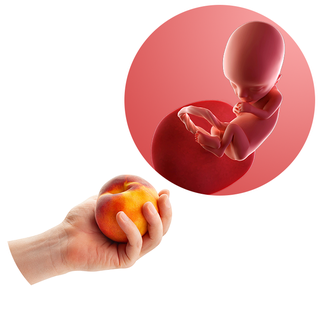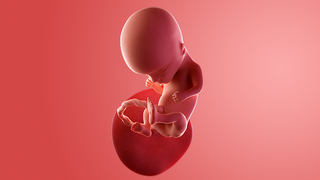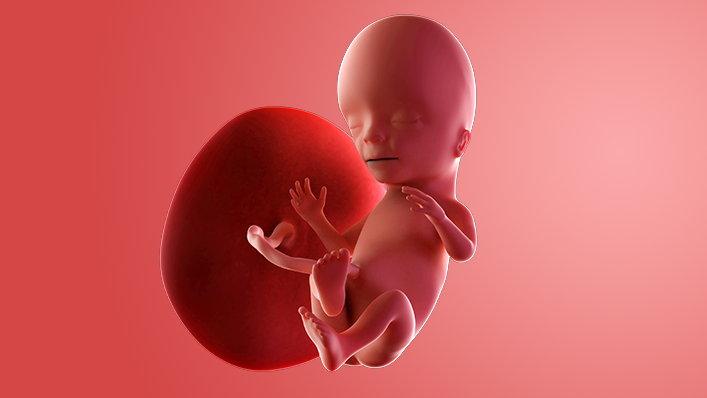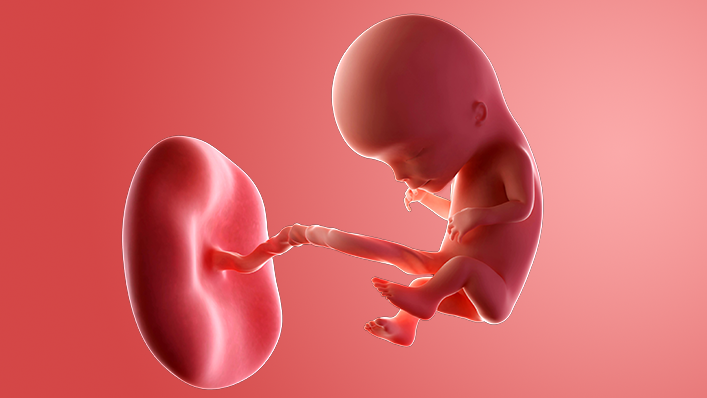What's happening in my body?
A small baby bump may now be visible as your uterus (womb) grows upwards and outwards. If you've been feeling the urge to pee more often, that should stop as the womb moves away from your bladder.
Meanwhile, there's a lot more blood pumping around your pelvic area and some women find that it increases their sex drive. It could also make you feel more thirsty, so drink lots of fluids.
Sex during pregnancy is perfectly safe, unless your midwife or doctor has advised you otherwise.
Infection alert
There are ways you can protect yourself and the baby from many harmful viruses and bacteria:
- Try to avoid contact with anyone who has chickenpox or rubella – talk to your doctor or midwife straight away if you think you could be infected.
- If you have a cat, get someone else to empty the cat litter tray, as the faeces could contain a bug called Toxoplasma gondii. This can cause an infection called toxoplasmosis that could damage your unborn baby.
- You can also get toxoplasmosis from certain foods. Foods to avoid during pregnancy include undercooked meats, cured meats like salami, and unpasteurised goats' milk and cheese.
- Seek advice before travelling to any area affected by the Zika virus, as the virus can cause birth defects.
Teeth troubles
Swollen, painful and bleeding gums are common during pregnancy. Read about keeping teeth and gums healthy in pregnancy on the NHS website.
You are entitled to free NHS dental care during pregnancy and for a year after your baby is born. Ask your doctor or midwife for a maternity exemption certificate.
You already know the basics – clean your teeth twice a day, avoid sugary snacks and drinks, and do not smoke as it can make gum disease worse. But did you also know that:
- a soft toothbrush is best for sensitive gums
- you should brush in gentle circles, up and down
- if you're sick, protect your teeth by rinsing your mouth out with water, to flush away harmful acid in your vomit
- you should stick to alcohol-free mouthwashes to reduce plaque
2nd trimester pregnancy symptoms (at 13 weeks)
Your signs of pregnancy could include:
- swollen and bleeding gums
- pains on the side of your belly caused by your expanding womb (known as "round ligament pains")
- headaches
- nosebleeds
- bloating (read ways to cope with bloating on week 10's page)
- constipation (read about how to treat constipation on week 16's page)
- indigestion and heartburn (read ways to cope with indigestion and heartburn on week 25's page)
- sore breasts
- leg cramps
- feeling hot
- dizziness
- swollen hands and feet
- urine infections
- vaginal infection (read about how to treat vaginal infections on week 15's page)
- darkened skin on your face or brown patches – this is known as chloasma or the "mask of pregnancy"
- greasier, spotty skin
- thicker and shinier hair
You may also still experience symptoms from earlier weeks, including:
- morning sickness
- unusual pregnancy cravings
- heightened sense of smell
- mood swings
- white milky pregnancy discharge from your vagina
- light spotting (seek medical advice for any bleeding)
What does my baby look like?
Your baby, or foetus, is around 7.4cm long, which is about the size of a peach.
Your baby's ovaries or testes are fully developed inside and final tweaks are being made on the outside.
The baby is moving around. At first the movements are very jerky and random but then they start to look more deliberate. You may not feel any movement until around week 17.
Some babies suck their thumb in the womb. This actually serves a purpose as it helps to develop their sucking reflex. They'll need this when it comes to feeding.

Action stations
More in week-by-week

Week 14
Hopefully you are starting to feel less tired and sick now. As your energy levels return, your appetite might too.
More in week-by-week guide to pregnancy


